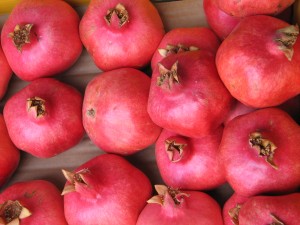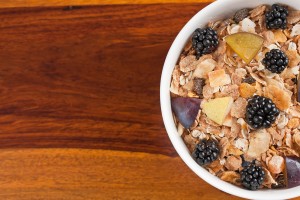 Quinoa (pronounced keen-wah) is just now growing in popularity in the United States although it has been around for centuries. It was grown and consumed by the Incas as one of their main sources of food long before 3000 B.C. It was used to feed their armies. It was mixed with fat into little balls that they would eat on trips and in battles. Though thought of as a grain, it is actually a seed that comes from the Goosefoot plant, and it is a superfood powerhouse.
Quinoa (pronounced keen-wah) is just now growing in popularity in the United States although it has been around for centuries. It was grown and consumed by the Incas as one of their main sources of food long before 3000 B.C. It was used to feed their armies. It was mixed with fat into little balls that they would eat on trips and in battles. Though thought of as a grain, it is actually a seed that comes from the Goosefoot plant, and it is a superfood powerhouse.
One of the main nutritional factors in quinoa is that it is full of amino acids, and they are perfectly balanced. This is especially important for those who are vegetarian or vegan, as there are no plant-based foods that have this amino acid balance. Another great thing about quinoa is that it is very high in protein. Depending on the variety, it can be up to 18% protein per cup. This can be helpful in losing weight, as it will help you to feel fuller longer. Quinoa is also chock full of vitamins and other healthy minerals, including calcium, iron, phosphorous, potassium, and zinc. It is also gluten-free making it a great addition to those on gluten-free diets.
So now you know what it is and how to pronounce it, what do you do with it? Well, there are several ways to incorporate it into your diet, but the simplest is to boil it. Â Measure 1 cup of quinoa to 2 cups of water, and cook as you would rice. You can add vegetables to it, or make it in place of oatmeal for breakfast adding honey and cinnamon. You can also find countless recipes online for desserts, main dishes, and appetizers.
Before cooking, be sure to place the quinoa in a strainer and rinse well. Store the quinoa in a tight container until ready to use, and it will keep for a year.





